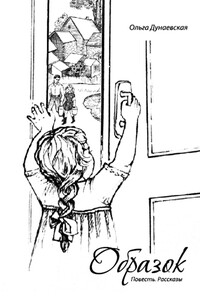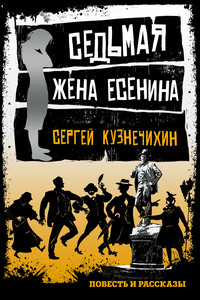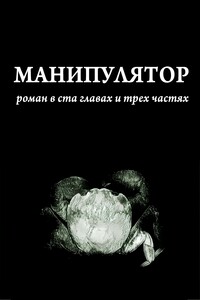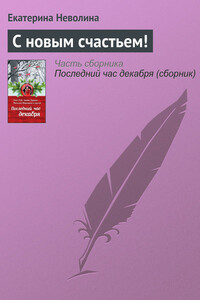36 Arguments for the Existence of God - [2]
But now things had happened-fundamental and fundamentalist things-and religion as a phenomenon is on everybody’s mind. And among all the changes that religion’s new towering profile has wrought in the world, which are mostly alarming if not downright terrifying, is the transformation in the life of one Cass Seltzer.
First had come the book, which he had entitled The Varieties of Religious Illusion, a nod to both William James’s The Varieties of Religious Experience and to Sigmund Freud’s The Future of an Illusion. The book had brought Cass an indecent amount of attention. Time magazine, in a cover story on the so-called new atheists, had singled him out as the only one among them who seems to have any idea of what it feels like to be a believer-“to write of religious illusions from the standpoint of the regretfully disillusioned”-and had ended by dubbing him “the atheist with a soul.” When the magazine came out, Cass’s literary agent, Sy Auerbach, called to congratulate him. “Now that you’re famous, even I might have to take you seriously.”
Next had come the girl, although that designation hardly does justice to the situation, not when the situation stands for the likes of Lucinda Mandelbaum, known in her world as “the Goddess of Game Theory.” Lucinda is, pure and simple, a wondrous creature, with adoration her due and Cass’s avocation.
And now, only today, as if his cup weren’t already gushing over, had come a letter from Harvard, laying out its intention of luring him away from Frankfurter University, located in nearby Weedham, Massachusetts, about twelve miles upriver from where Cass is standing right now. Cass has spent the last two decades at Frankfurter, having first arrived to study under the legendary Jonas Elijah Klapper, the larger-than-life figure who had been Cass’s mentor and Cass’s tormentor.
After all that has happened to Cass over the course of this past year, he’s surprised at the degree of awed elation he feels at the letter bearing the insignia of Veritas. But he’s an academic, his sense of success and failure ultimately determined by the academy’s utilities (to use the language of Lucinda’s science), and Harvard counts as the maximum utility. Cass has the letter on him right now, zippered into an inside pocket of his parka, insulating him against the cold.
It will be a treat to tell Lucinda about Harvard’s offer. He can see the celebratory clinking of flutes, her head thrown back in that way she has, exposing the tender vulnerability of her throat, and that’s why he’s decided to wait out the week until she comes home to tell her. There’s no one in all the world in a better position than she to appreciate what this offer means to Cass, and no one who will exult more for him. Lucinda herself has known such dazzling success, from the very beginning of her career, and she has taught him never to make apologies for ambition. Ambition doesn’t have to be small and self-regarding. It can be a way of glorying in existence, of sharing oneself with the world and its offerings, of stretching oneself just as wide to the full spread of its possibilities as one can go. That’s how Lucinda goes about her life.
It’s 1 a.m. now for Lucinda. She’s taken the little amber bottle of Ambien with her-he’d checked their medicine cabinet round about 2 a.m.-so she’s down for seven and a half hours. She’ll be sleeping in T-shirt and shorts, her muscled legs-Lucinda competes in triathlons- probably already having fought their way clear of the bedclothes. Lucinda begins each night neatly tucked within her comforter, carefully placing her cold feet in the pockets, but no sooner is she asleep then the long struggle for freedom begins, and her legs are nightly manumitted.
For thirty-five weeks now, Cass has had the privilege of acquiring this intimacy of information regarding Lucinda Mandelbaum: her rituals of brushing and flossing and exfoliating and lotioning; the facts that she gets hiccoughs if she eats hard-boiled eggs too quickly and that her cold hands and feet are the result of Raynaud’s syndrome; that she had spent her junior year of college at Oxford and had acquired a taste for certain British products that she orders from a Web site called British Delights; that as a girl she had wanted to be either a concert pianist or Nancy Drew; that she sometimes makes a whole dinner of a product called Sticky Toffee Pudding, is mildly libertarian in her politics, and gasps always with the same sound of astonishment in lovemaking.
How is it that Cass Seltzer is intimate with the texture of Lucinda Mandelbaum’s life? His election-in that old crazy Calvinist sense, about which Cass knows more than a little-is absolute.
Suspended here above the ice-stilled Charles, he pictures Lucinda asleep, her mouth slightly open and her delicate eyelids fluttering in dreams-oh, make them happy!
She usually falls asleep before him, and the sight of her sleeping always wrenches his heart. All that mental power temporally suspended, her lashes reclining on the delicate curve of her high cheekbone, her fluffy ash-blond hair released from its daytime restraints and spread fragrant and soft on her Tempur-Pedic pillow. He sees the little girl she must have been. He sees the phantom child yet to be, materializing before his mind with her mother’s incandescent skin and hair, her gray eyes outlined in blue and lit with points of fierce intelligence. Watching Lucinda sleeping or absentmindedly playing with a strand of hair while she scratches out the esoteric symbols of her science, or leaving their front gate-with its sign left over from the previous owners, “Please close the gate, remember our children”-the force of the fantasy catches him off guard.

Название повести «Образок» в книге Ольги Дунаевской символично: образ детства, родных людей, мест, всего любимого и ушедшего, но сохранившегося в душе навсегда. Самым близким человеком для героини становится бабушка, уход которой из жизни рушит и без того хрупкий Олин мир. Искренности этой мемуарной повести добавляют фрагменты воспоминаний, записанные едва научившейся писать девочкой под диктовку бабушки. Рассказы, грустные и смешные, продолжают жизнь героини во времени. Они о самом главном – об отношениях с теми, кого мы любим.

Герои повести «Седьмая жена поэта Есенина» не только поэты Блок, Ахматова, Маяковский, Есенин, но и деятели НКВД вроде Ягоды, Берии и других. Однако рассказывает о них не литературовед, а пациентка психиатрической больницы. Ее не смущает, что поручик Лермонтов попадает в плен к двадцати шести Бакинским комиссарам, для нее важнее показать, что великий поэт никогда не станет писать по заказу властей. Героиня повести уверена, что никакой правитель не может дать поэту больше, чем он получил от Бога. Она может позволить себе свести и поссорить жену Достоевского и подругу Маяковского, но не может солгать в главном: поэты и юродивые смотрят на мир другими глазами и замечают то, чего не хотят видеть «нормальные» люди…Во второй части книги представлен цикл рассказов о поэтах-самоубийцах и поэтах, загубленных обществом.

ВНИМАНИЕ! ПРОИЗВЕДЕНИЕ СОДЕРЖИТ НЕНОРМАТИВНУЮ ЛЕКСИКУ! «Манипулятор» – книга о стремлениях, мечтах, желаниях, поиске себя в жизни. «Манипулятор» – книга о самой жизни, как она есть; книга о том, как жизнь, являясь действительно лучшим нашим учителем, преподносит нам трудности, уроки, а вместе с ними и подсказки; книга о том, как жизнь проверяет на прочность силу наших желаний, и убедившись в их истинности, начинает нам помогать идти путем своего истинного предназначения. «Манипулятор» – книга о силе и терпении, о воодушевлении и отчаянии, о любви и ненависти, о верности и предательстве.

"Манипулятор" - роман в трех частях и ста главах. Официальный сайт книги: http://manipulatorbook.ru ВНИМАНИЕ! ПРОИЗВЕДЕНИЕ СОДЕРЖИТ НЕНОРМАТИВНУЮ ЛЕКСИКУ! ПОЭТОМУ, ЕСЛИ ВЫ НЕ ДОСТИГЛИ ВОЗРАСТА 18+ ИЛИ ЧТЕНИЕ ПОДОБНОГО КОНТЕНТА ПО КАКИМ ЛИБО ПРИЧИНАМ ВАМ НЕПРИЕМЛЕМО, НЕ ЧИТАЙТЕ "МАНИПУЛЯТОРА".

"Манипулятор" - роман в трех частях и ста главах. Официальный сайт книги: http://manipulatorbook.ru ВНИМАНИЕ! ПРОИЗВЕДЕНИЕ СОДЕРЖИТ НЕНОРМАТИВНУЮ ЛЕКСИКУ! ПОЭТОМУ, ЕСЛИ ВЫ НЕ ДОСТИГЛИ ВОЗРАСТА 18+ ИЛИ ЧТЕНИЕ ПОДОБНОГО КОНТЕНТА ПО КАКИМ ЛИБО ПРИЧИНАМ ВАМ НЕПРИЕМЛЕМО, НЕ ЧИТАЙТЕ "МАНИПУЛЯТОРА".

«За окном медленно падал снег, похожий на серебряную пыльцу. Он засыпал дворы, мохнатыми шапками оседал на крышах и растопыренных еловых лапах, превращая грязный промышленный городишко в сказочное место. Закрой его стеклянным колпаком – и получишь настоящий волшебный шар, так все красиво, благолепно и… слегка ненатурально…».